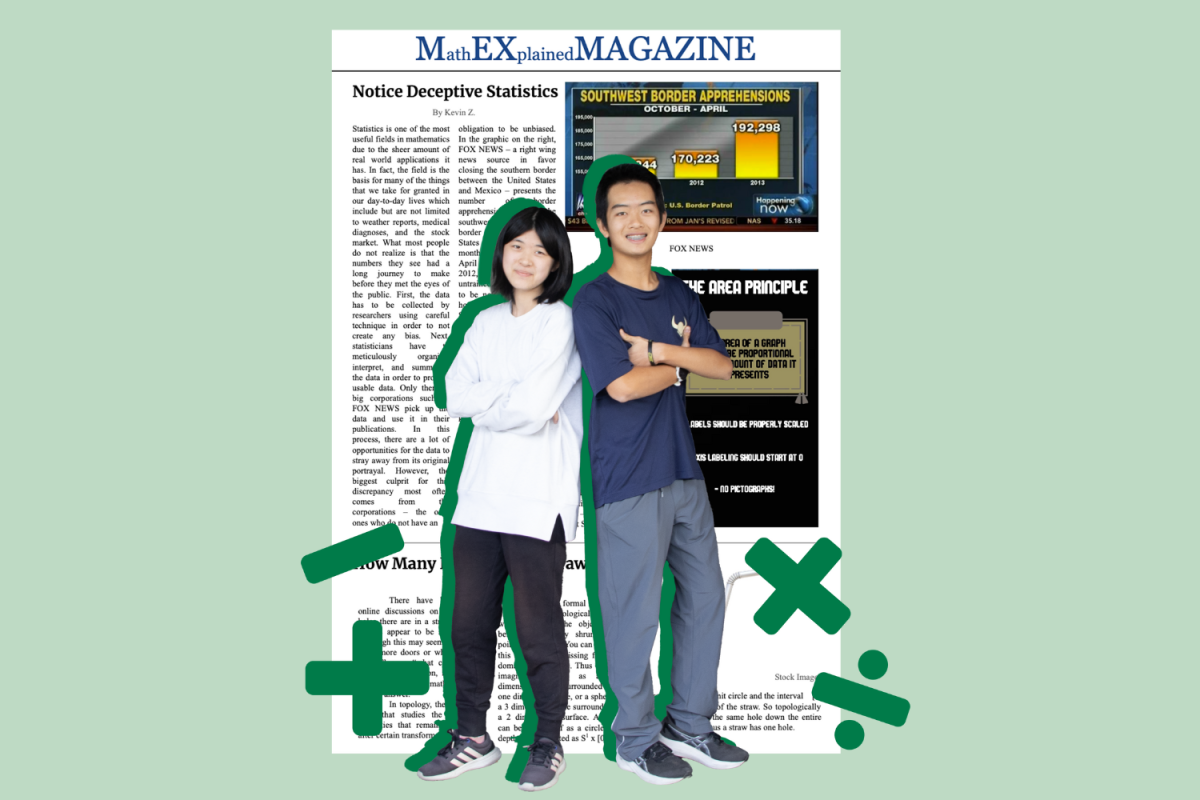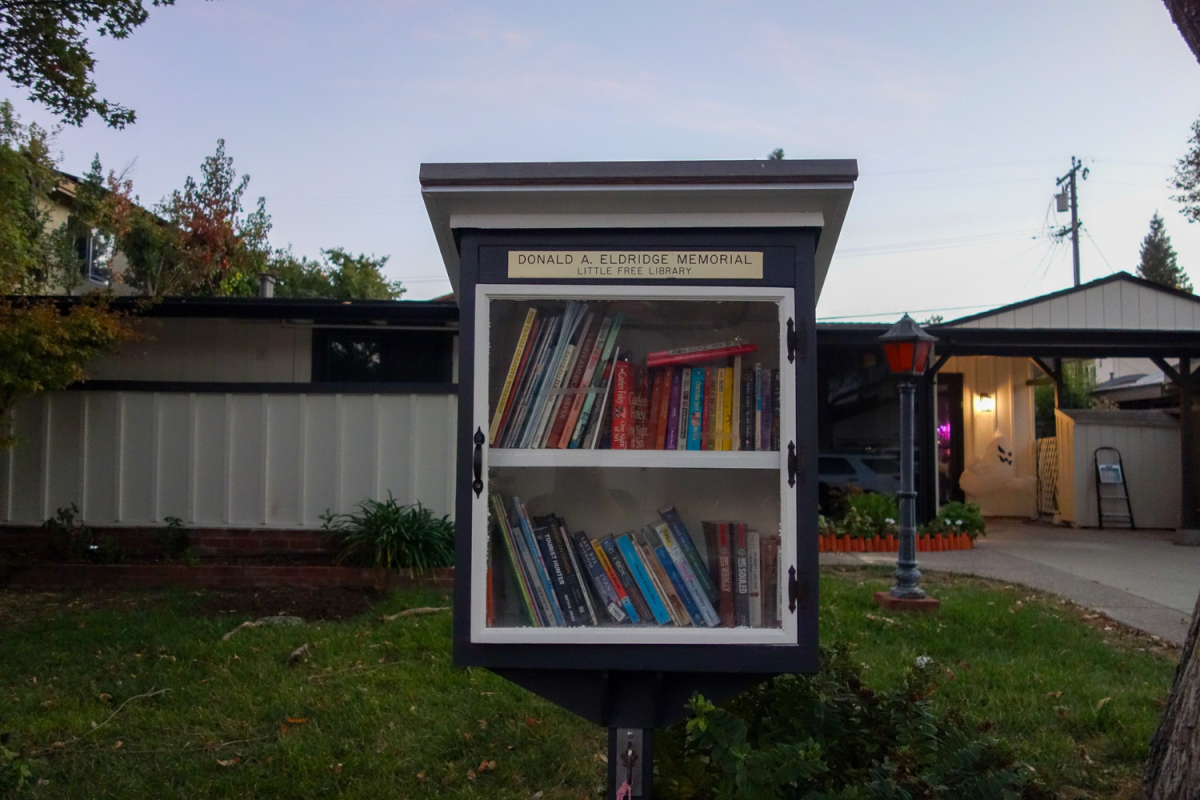In a transitional kindergarten classroom at Dilworth Elementary School, a poster containing neopronouns has garnered controversy, as some parents believe that it is inappropriate for children to learn about such topics at a young age. These discussions initiated the creation of the organization Curriculum Integrity: a group of concerned parents and guardians from the Cupertino Union School District.
Since Aug. 22, members of the organization have been attending CUSD board meetings to petition for the removal of supplemental materials regarding gender fluidity and neopronouns from elementary classrooms. They were met by other CUSD teachers and parents who believe it is important to introduce such topics early on, protesting against backlash the teacher received. Curriculum Integrity responded with a petition, asking the board to take action and set stricter guidelines for what is taught in the classroom.
The controversy began when parents noticed a “We are Free to Be” poster in room 22, including gendered pronouns such as “he,” “she” and “them” and various neopronouns including “ze” and “tree,” the latter of which they believed to be unfit for elementary students. In September, they began outreach, informing other parents about the poster, evolving into the organization Curriculum Integrity. Group members claimed that there was an abundant amount of gender-inclusive books yet a lack of literature that focused on other aspects of identity — ethnicity, language and culture. Parents said that they did not know these supplemental materials existed within the curriculum, and unlike sexual health education in fifth and seventh grade, they have no option to opt-out of those topics.
“When we talk about curriculum, no matter the age, the key piece is that it’s developmentally appropriate,” said Ashley Kipple, De Anza College instructor of child development and education. “When we are talking about a class of 4- and 5-year old students, the idea of gender is appropriate to have dialogues about as gender identity development starts around the age of 3 years old. That’s going to look very different than it should in a first grade, fifth grade, high school or college classroom.”
California Education Code 51101 states that parents and guardians have the right to examine the class’s curriculum materials and collaborate with the school to adopt policies that outline how the school community should contribute to the well-being and development of the student. CUSD adheres to these guidelines for state-mandated sexual health and HIV education. Parents have the opportunity to attend a webinar to learn about the curriculum and reserve the option to remove their student from selected lessons, the unit or the whole program. Curriculum Integrity members expressed that they should be given the same options for discussions about gender fluidity.
Parents and teachers came to several CUSD board meetings to share their opinions on how the district should handle the matter. Some parents argued against the addition of gender identity in the TK curriculum. Other CUSD educators and parents in support of the teacher’s lessons defended the teacher’s ability to teach their students about a part of their individuality — a topic these speakers believed relevant to the students’ future understanding of gender identity and growth.
Cupertino Education Association, CUSD’s teacher union, withheld the name of the teacher from room 22 due to claims of harassment. The teacher later spoke at the Sept. 12 board meeting, explaining how they never felt like they fully belonged growing up queer at Christa McAuliffe Elementary School in CUSD. They voiced their belief that many current CUSD students feel the same and will continue to unless the board takes immediate action to support LGBTQ+ students and staff by implementing more LGBTQ+ inclusive policies.
“We know our schools and communities are safer for LGBTQ+ teachers and families when inclusive practices are explicitly named,” said CEA President Kate Lee in a statement to NBC Bay Area. “CEA continues to urge CUSD to affirm their commitment to the safety of our LGBTQ+ community.”
Curriculum Integrity created a Google Form petition requesting the CUSD Board immediately establish policies requiring educators to follow strict, grade-level curriculum standards and remove all curricula not within those set specifications. This petition amassed over 450 signatures between Sept. 26 and Oct. 1, according to the Curriculum Integrity website.
Members of Curriculum Integrity requested that CUSD allow parents who believe that gender identity topics are too complex to be able to withdraw their children from such curriculum. They also wanted to establish an appeal system in which parents can submit objections to the educator or school administration if controversial topics are brought up in the classroom.
Their petition also emphasized implementation of FUHSD Board Policy 6144 which states that instruction on controversial issues should be relevant to the adopted curriculum “suitable to the age and maturity of the students.” Educators are able to choose which topics are appropriate topics for discussion under this policy, yet the superintendent and administrators can prevent teachers from speaking on issues the Board deems unsuitable. According to the policy, “teachers are expected to act on behalf of the district and follow the adopted curriculum.” Moreover, in class discussions about issues that may be controversial, they are restricted from advocating for their personal opinions. Advocates for Curriculum Integrity argue that because FUHSD has already incorporated BP 6144, CUSD should follow suit.
“Deciding if curriculum is developmentally appropriate takes into account the cultural context of the children and the community members,” Kipple said. “If there was dialogue in a classroom because children were asking questions and trying to understand the world, then it’s developmentally appropriate to start unpacking some of those questions in a language that they can understand.”
Those who deem the implementation of BP 6144 unnecessary claim that this would create confusion among students and detract from discussion.
“It will create a chilling effect on people who feel like they aren’t able to exercise their own professional judgment and share their own interests and identities, which is part of how teachers make interesting and meaningful connections with students,” a CUSD parent and alumna said. “Moreover, if we say that anything we are uncomfortable with is controversial and opt our children out of that kind of education, it essentially creates a back channel for prejudice.”
As discussions regarding the implementation of BP 6144 continue, Curriculum Integrity sent a news release to the Mercury News, NBC Bay Area and other local media sources, reiterating their wish for BP 6144 adoption, referencing a ruling by the Third Circuit Court of Appeals in a similar case in Pennsylvania. In October 2024, after a 2-year lawsuit, the court sided against Mt. Lebanon School District in Pittsburg, Pa., after a first-grade teacher read two novels about gender dysphoria and transgender transitioning to her students. According to the law report for Tatel et al. v. Mt. Lebanon School District et al., the court acknowledged a previous ruling which deemed that when disagreements between parental beliefs and school policy occur, “the primacy of the parents’ authority must be recognized and should yield only where the school’s action is tied to a compelling interest.”
Critics of Curriculum Integrity point out that the California Department of Education’s Preschool and Transitional Kindergarten Learning Foundations state that one’s self-identity should be respected for children as early as 4- to 5 ½- years old. PTKFL’s guidance not only allows but encourages teachers to include visuals and books that teach their young students about individuality and identity. The goals involve allowing students to understand and express their personal identity and identify similarities and differences among people they know — specified to include gender. According to the Early Childhood Environment Rating Scale, a tool used to ensure a high-quality indoor environment, diversity of races, cultures, ages and gender in non-stereotyping roles should be featured throughout the classroom for preschool-aged children.
“In the PTKFL, gender is mentioned together with race, ethnicity and culture as a whole,” a representative for Curriculum Integrity said in an email interview. “Decorating an entire classroom with a focus on gender identity over other aspects of diversity does not make the environment more inclusive.”
In addition to the PTKFL, California Education Code 60040 states that the board should only include instructional materials in elementary and secondary education that accurately portray the cultural and racial diversity of society. This includes “the contributions of people of all genders in all types of roles, including professional, vocational and executive roles” and “the role and contributions of LGBTQ+ Americans, persons with disabilities and members of various ethnic, cultural, religious and socioeconomic status groups to the total development of California and the United States.”
At the same time, California Education Code 60045 states that “all instructional materials adopted by any governing board for use in the schools shall be suited to the needs and comprehension of pupils at their respective grade levels.”
On Sept. 26, CUSD released a statement confirming that although schools in the district “allow for the use of instructional materials to enrich the curriculum and enhance student learning,” the materials in classroom 22 at Dilworth were not part of the district’s adopted curriculum. The statement declared that CUSD took immediate steps to address parents’ concerns and to ensure that all curriculum materials align with the district’s goals and standards. The teacher has since been placed on leave while a third-party investigation occurs. CUSD later released an additional statement on Oct. 17 explaining that “classroom decoration should reflect and celebrate the broad spectrum of diversity found within the District”.
On Oct. 17, the CUSD Board discussed the California School Boards Association’s version of BP 6144, considering points from Curriculum Integrity and critics of the group in relation to their own possible implementation of the policy. Typically, board policies remain general, and Administrative Regulations are later built upon the board policies, providing more explicit standards specifically tailored to the district. Surrounding districts, including the Santa Clara Unified School District and the Campbell Union School District, have adopted BP 6144, modified CSDA’s template and created their own regulations. The board plans to review these other Administrative Regulations, draft their own and modify their draft of BP 6144 by their next meeting on Nov. 7. with the possibility of a decision either supporting or opposing protections for discussions about gender identity. A vote for the adoption of BP 6144 is expected to take place in the future.







































































